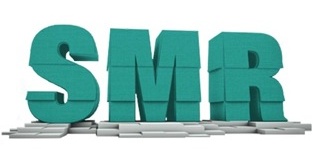Seagate Technology says it’s shipped over one million drives using shingled magnetic recording (SMR). SMR is the next generation in storage technology.
Seagate says it’s critical for continued improvement in areal density (the amount of data that can be stored on a single disk) to support global growth in cloud and mobile usage. The SMR generation of storage technology is expected to power gains of up to 25%.
“With nearly 7 billion inhabitants on earth we are creating an astounding 2.7 Zettabytes of data a year and as such are rapidly approaching the physical limits of how much can be written on a single conventional hard disk drive,” says Mark Re, Seagate’s chief technology officer. “With SMR technology, Seagate is on track to improve areal density by up to 25% or 1.25TB per disk, delivering hard drives with the lowest cost per gigabyte and reaching capacities of 5TB and beyond.”
The last technology transition, perpendicular recording, improved areal density by arranging the bits in a perpendicular fashion, enabling narrower data tracks and read/write heads. Due to physical limitations read/write heads can’t become smaller. The most reliable option to improve areal density is to change the way data is written to the drive.
This is where SMR technology comes into play. A fundamental change to the architecture of the media, SMR technology rearranges the way data is stored on a disk by overlapping tracks — similar to shingles on a roof — increasing track density and improving aerial density. As a result of increased track density the amount of data on a single disk increases as does the overall storage capacity of a single drive.
“The HDD industry is experiencing Petabyte shipment growth rates greater than 30 percent per year while at the same time HDD areal density is improving at a rate less than 20 percent per year,” notes John Rydning, IDC’s research vice president, for hard disk drives. “Shingled magnetic recording technology is a solution that leverages existing drive architecture to help close the gap in these growth rates while at the same time providing a relatively simple yet economical path to higher capacity HDDs for many applications.”
SMR can improve reliability by allowing Seagate to use fewer heads and disks to achieve new capacity points. SMR also provides a better value by increasing storage capacity while utilizing the same disk and heads as drive configurations shipping today thereby, providing a more cost-effective approach to increasing aerial density, says Re. For more information on Seagate shingled magnetic recording technology go to http://tinyurl.com/nhpwrfd .



